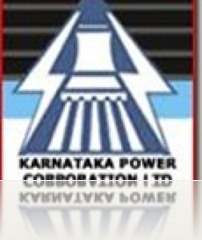Netaji Subhash Institute of Technology is a fully residential Institute located in Sector-3 at Dwarka , New
Delhi. It was established in 1983 by Delhi administration with the approval of the Govt. of India to meet the growing
demand of manpower in high-tech areas of Engineering & Technology. The institute became autonomous in 1987.
With in a span of 28 years since its inception, NSIT has carved a name for itself and it is now an
established institute with well equipped modern Laboratories, well laid down `Profile of Growth` and a strong
commitment for achieving excellence in technical education and research, with the ultimate goal of achieving
University status in near future.
Ph.D Programmes (Full- Time)
Applications are invited for Teaching- cum-Research-fellowship in the following Divisions:-
(i) Division of Electronics & Communication Engineering (ECE): Bipolar and CMOS
analog circuit design, Analog VLSI circuits/Analog Signal Processing, DSP; Digital Communication;
Optical networks, Optical communication, Wireless and Mobile Communication.
(ii) Division of Computer Engineering & Information Technology (COE & IT) :
Reconfigurable Computing and FPGA, Software Engineering, Information System, Real Time Systems,
Artificial Intelligence, Data Mining, Image Processing, Computer Networking, Mobile computing,
Hardware Software Co-design, Sensor Networks, Video modeling & processing, Video Broadcasting,
Text Classification, Software Testing, Adhoc Networks, Human behaviour & Data mining.
(iii) Division of Instrumentation and Control Engineering (ICE): Industrial Electronics and
industrial drives, Instrumentation including Biomedical and intelligent instrumentation, Process Control
and Mechatronics, Networking and Distributed Computer Control System. Intelligent Control, optimal
control, Fractional order Controllers, Bioinformatics, Game theory, Reinforcement learning and its
Applications In Robotics.
(iv) Division of Manufacturing Processes and Automation Engineering (MPAE):
Manufacturing Processes, Manufacturing Automation, Computer Aided Design & Manufacturing,
Computer Integrated Manufacturing, Electrochemical & Electrodischarge Machining, Unconventional
Machining Process, Robitics and Multicriteria decision methods using AI, Hybrid machining Technology.
(V) School of Applied Sciences (SAS): Mathematics : Approximation Theory, Fluid dynamics,
Biomechanics, Linear and Nonlinear waves, Cosmology, Astronomy and Astrophysics, Complex
analysis, Partial Differential Equations, General Relativity, Gas Dynamics. Chemistry : Inorganic
Chemistry, organic Chemistry, Physical Chem. Physics: Material Science, Elastic Dielectrics,
Nanometric Dielectrics, Electro-mechanical transducers/sensors/Electrical Characterization of MCT
Heterostructures. Solar Energy (Heat Transfer) & Energy Engineering, Solar Energy Materials, Solar
Cell, Nano Solar Energy materials, mathematical Modelling and Simulation, Green building and solar
Passive Technology.






























